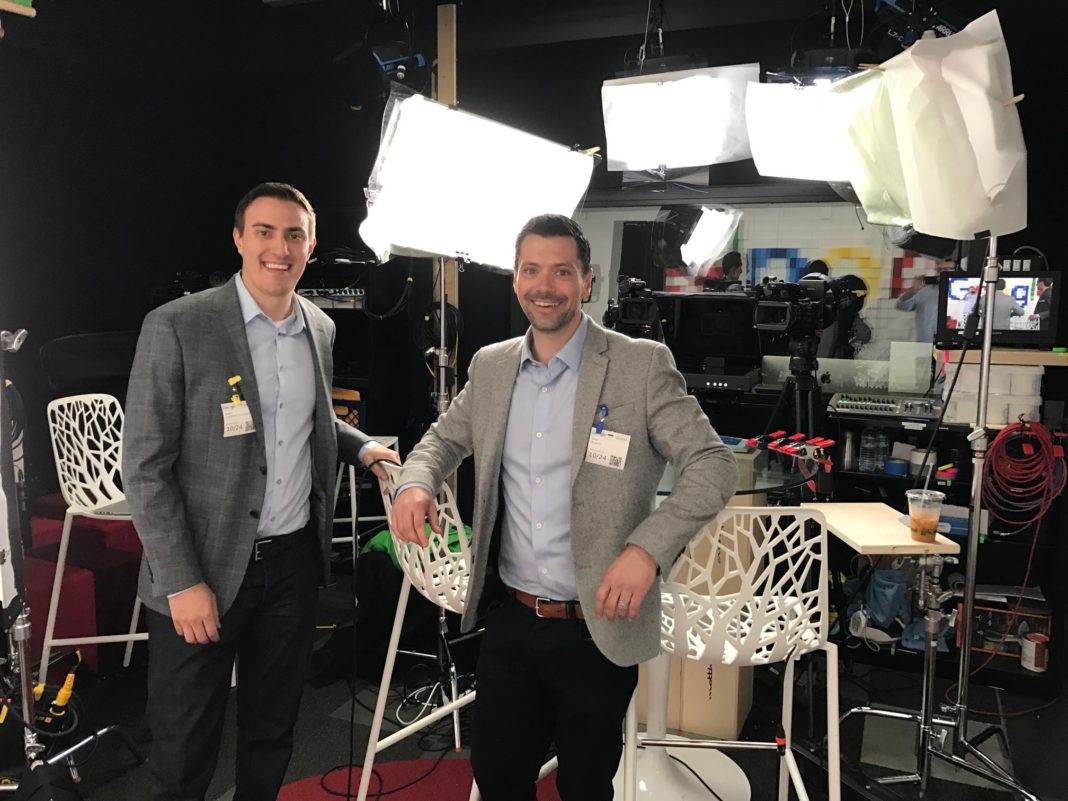“I’m the last generation that remembers what life was like without the internet,” Reed Langton-Yanowitz, Vice-President of Search Marketing at Rocket55, recalled. “We always had a computer. I started with DOS, when everything was command-based. I remember in early middle school being introduced to Encarta. It was software that was Wikipedia before Wikipedia existed. I saw how it changed your ability to access information.”
Langton-Yanowitz learned coding when he got a TI83 calculator, but he was always interested not only in how the technology works, but also “how we can use it to change our lives.”
At Carleton College, he majored in economics because he “had an inclination to go into business” and “figured econ would set me up well.” After graduation, he realized that he’d gained good skills in statistical analysis and critical thinking, but the university emphasis on theory wasn’t as applicable to the job market as he’d hoped.
Langton-Yanowitz leveraged his way into the business world through a digital marketing opportunity. He picked up some freelance work that exposed him to Google AdWords. That led to his current position in search marketing. “It’s a bit of a winding road,” he acknowledged. Still, he’s convinced that university econ departments are “great resources” for recruiting new search marketing employees. Within the past year, he said, Rocket55 has hired one econ major, another econ student is working as an intern, and a second will be added in the spring. “They’re smart and have the ability but they need a foot in the door, so it can be mutually beneficial,” he said.
Q: What does Search Marketing mean?
A: We say: Get the traffic there, and then get it to convert. You want the user to take an action.
Q: Is search marketing more about understanding how technology works, or more about user behavior?
A: You really do have to think about both things. The technical aspect is still really important–what Google is using to drive people to your website. Once traffic gets to the page, it’s important to know how the user will proceed through the site. We have specialists in our company on the technical side and on the user experience side. My job is to bring both those teams together and create a usable narrative.
Q: How do you get your foot in the door in search marketing, since there aren’t degrees in it yet?
A: First, there are some certification exams that Google provides for analytics. You see traffic by channel–organic searches, social media. How that traffic engaged with your site, what kind of actions that person took. Creating your own WordPress website is easy for beginners. You can implement some of the SEO tactics that you learn. Then you can show the employer, “I’m driven enough to make this happen. Look at these best practices.”
Q: Is search marketing a growth area?
A: Every year about 20 percent more money is spent on Google AdWords. People are only using phone book as doorstops. If you’re doing research on a company, people are looking online. They’re looking on the go and with very strong intent. It’s very important for any business that hasn’t been looking at its online presence.
Q: What’s the latest trend in search marketing?
A: For 2017, mobile friendliness of a site will determine where it shows up in search results. Google rolls out changes gradually so you might not be penalized immediately, but mobile will become more significant over time. There are already more clicks from mobile devices than from desktops.
Sites were made three or four years ago with desktop design in mind. User experience of that content in a mobile environment isn’t quite the same. Any business owners should look at their site on a mobile device. If there are issues with site speed, get that fixed. Make sure there are no small buttons. A lot of times the way elements are stacked doesn’t always get as much consideration as it should. It’s important to make sure you have captivating information, that the call to action is spread out.
Q: What kinds of roles and job titles are there for a search marketing specialist?
A: There’s a variety of roles either at an agency or in-house for a business. Most times smaller to medium-sized just have a marketing manager. That person might be looking for assistant who would be wearing a few hats. You’d work in digital marketing but also traditional. In bigger companies, the role is broken out. There might be a social media manager, a paid search manager, an SEO manager. You can specialize a little bit more.
Q: What does it take to be really great in this job?
I think just a hunger to learn. In a lot of businesses, you gain expertise and become a knowledge base. That is the case to an extent with search marketing, but if you stop learning you will be out of date within a month. There are changes to the platforms and the algorithms. You have to be hungry to learn and enjoy that process. I think there’s a ton of people who have that.











